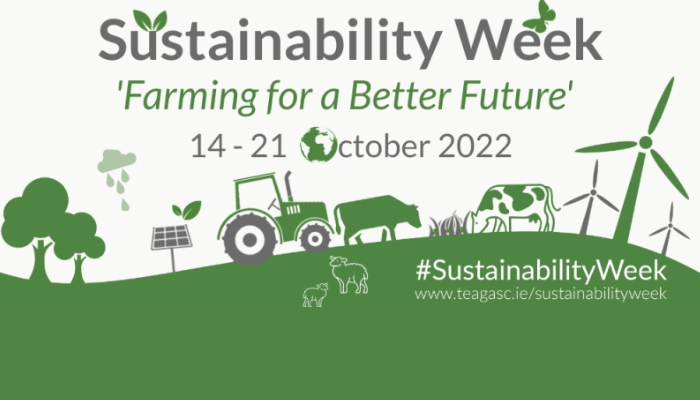14 October 2022
Reducing Greenhouse Gas Emissions

Methane (CH4), nitrous oxide (N2O) and carbon dioxide (CO2) are greenhouse gases generated by agriculture, which have a negative impact on climate change. In agriculture methane (CH4), nitrous oxide (N2O) are the most important.
Agriculture contributes over one third of Ireland’s national greenhouse gas emissions. Agriculture now has a target of a 25% reduction ion greenhouse gasses to be achieved by 2030.
Nitrous Oxide
Nitrous oxide (N2O) is a powerful GHG with a global warming potential 265 times greater than carbon dioxide (CO2) and has a lifespan of 100 years. Over the last 150 years, atmospheric concentrations of N2O have reached unprecedented levels, increasing from 270 parts perbillion (ppb) to 335 ppb. View Global N2O Levels
Read more about Nitrous Oxide
Methane
Methane is a colourless, odourless gas occurring abundantly in nature and as a product of certain human activities. Its chemical formula is CH4. Globally, it is the second most important greenhouse gas (GHG). Its contribution to global warming is estimated at 28 times that of carbon dioxide, over a 100 year period. Once produced, methane persists in the atmosphere for around 12 years after which it is eventually broken down into carbon dioxide and water.
Read more about Methane
Carbon Dioxide
Carbon dioxide (CO2) is the most important GHG in the Earth’s atmosphere. Global atmospheric CO2 concentrations reached 409.8 ± 0.1 parts per million (ppm) in 2019 and have been increasing at an average rate of 2.3 ppm per year since 2009. Approximately two-thirds of the total increase in atmospheric CO2 is derived from fossil fuel combustion. The other one-third is the result of land-use change – conversion of natural vegetation to managed land.
Read more about Carbon Dioxide
The agriculture sector has been asked to reduce their emissions these include Greenhouse gases and the air pollutant Amnonia. Watch this video to find out the steps Kildalton is taking to reduce their emissions.
Subscribe to the Signpost Programme e-newsletter
Subscribe here
